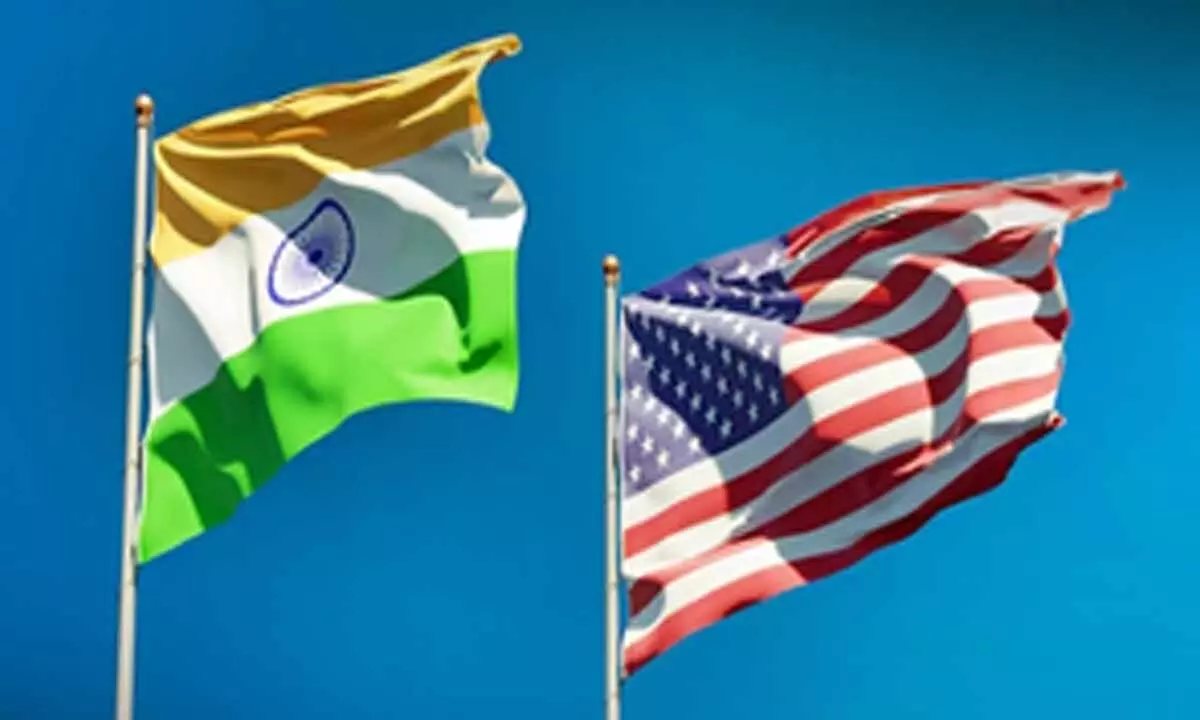India, US working to 'shape the future', write Blinken, Austin
Share :

US Secretary of State Antony Blinken and Secretary of Defense Lloyd Austin in a joint Op-ed have described the Biden administration's Indo-Pacific strategy as a latticework of bilateral and multilateral ties in which the US and India are "investing together across sectors that will shape the future" such as Artificial Intelligence and semiconductors in addition to cooperation as members of the Quad.
Washington: US Secretary of State Antony Blinken and Secretary of Defense Lloyd Austin in a joint Op-ed have described the Biden administration's Indo-Pacific strategy as a latticework of bilateral and multilateral ties in which the US and India are "investing together across sectors that will shape the future" such as Artificial Intelligence and semiconductors in addition to cooperation as members of the Quad.
The two top officials wrote in The Washington Post that President Joe Biden’s transformation of the US Indo-Pacific strategy and the results it has borne remain the “most important and least-told stories of the foreign policy strategy advanced by President Biden and Vice President Harris”.
They wrote in the Op-ed, which came close on the heels of the eighth ministerial meeting of the Quad that took place in Tokyo on July 29, that the Biden administration changed America’s hub-and-spoke relations with Indo-Pacific countries to “not just to strengthen our existing one-to-one relationships in Asia but also to bring those partners together in new and innovative way”.
Blinken and Austin cited the elevation of the Quad to the level of a summit of leaders, the lunch of AUKUS, a security partnership between Australia, the UK and the US, a three-way summit hosted by the US with South Korea and Japan, another three-way arrangement with Japan and the Philippines as the changes wrought by the Biden administration.
“We elevated the regional grouping known as the Quad -- Australia, India, Japan and the US -- to deliver hundreds of millions of lifesaving coronavirus vaccines, mobilize millions of dollars in digital-infrastructure investments, and advance the global clean energy transition,” they wrote, adding the Indo-Pacific Economic Forum (IPEF), whose 13 members include India, to the list.
Along with creating and upgrading multilateral ties with Indo-Pacific countries, the administration doubled down on the bilateral ties, “India and the United States are investing together across the sectors that will shape the future -- from semiconductors to artificial intelligence, to clean energy,” the officials wrote, referring to the US-India initiative on Critical and Emerging Technology (iCET). US National Security Adviser Jake Sullivan travelled to India in June for a meeting with his Indian counterpart Ajit Doval for a second round of talks on the initiative.
The two officials described the Indo-Pacific as a challenge when President Biden took office in January 2021. “America’s standing in this critical part of the world was at its lowest point in decades. The region was still reeling from the Covid-19 pandemic. Our allies and partners feared that the United States had become an unreliable friend. An increasingly aggressive China was taking advantage of America’s turn inward to advance its alternative vision of the world -- a vision hostile to US interests.”
Significantly, the two officials confined their concerns about China’s aggression to its behaviour at the sea. “We’re pushing back together against China’s dangerous brinkmanship in the region’s waterways,” they wrote, referring to China’s island and maritime disputes in the South China Sea.
At another point in the Op-ed, they wrote about “China’s dangerous and provocative actions at sea”. The reference was to the South China Sea. There was no reference to China’s aggression in its land disputes, such as the one with India.
















